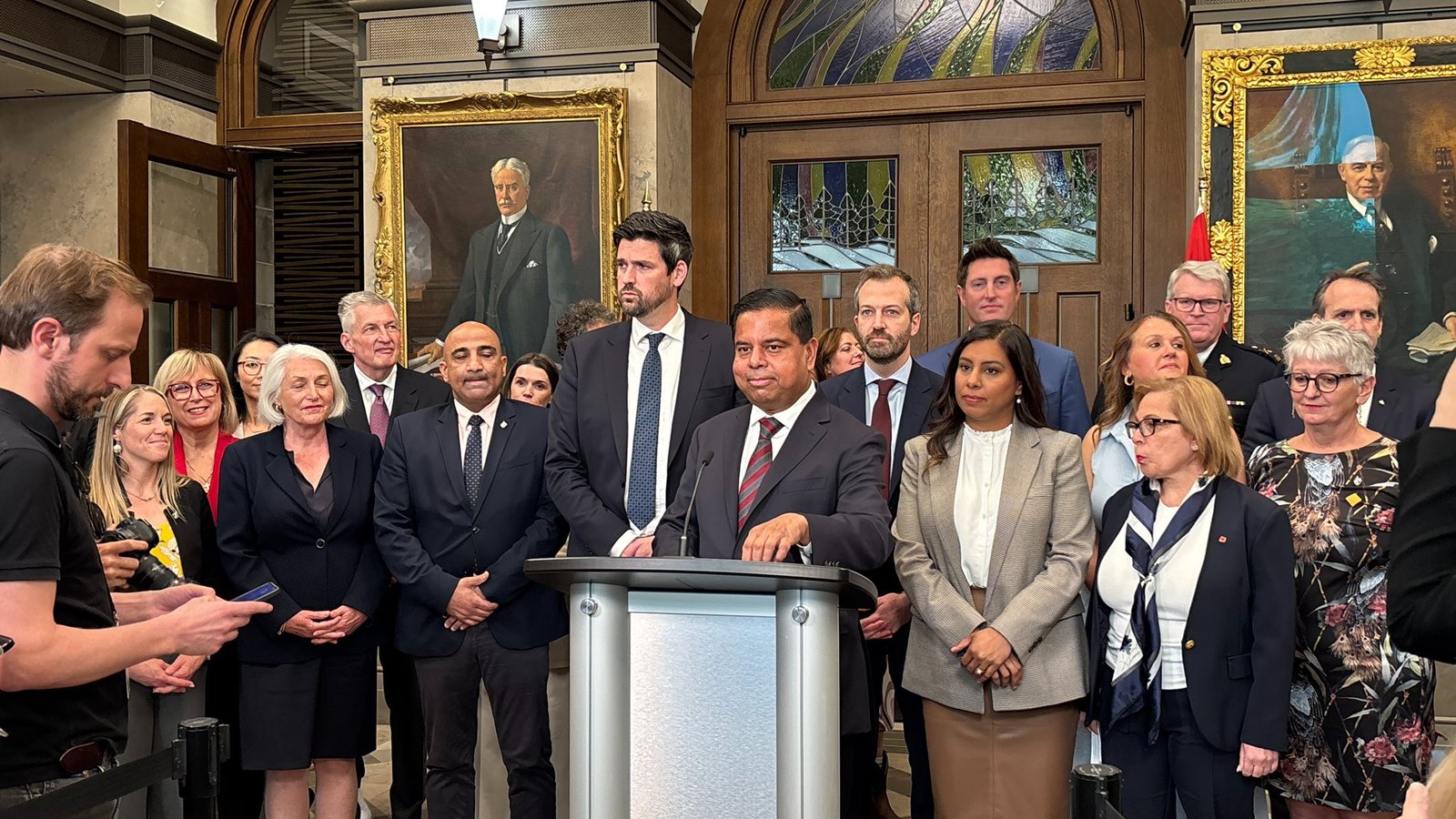
Ottawa: The Public Safety Minister, Gary Anandasngaree, has introduced the Bill, the Strong Borders Act. The federal government said it strengthen laws and keep Canadians safe.
According to the government, the Bill will keep Canadians safe by ensuring law enforcement has the right tools to keep our borders secure, combat transnational organized crime, stop the flow of illegal fentanyl, and crack down on money laundering. It will bolster our response to increasingly sophisticated criminal networks, and enhance the integrity and fairness of our immigration system while protecting Canadians’ privacy and Charter rights.
The minister said Amend the Customs Act to secure the borders against illicit drug trafficking, weapons smuggling, and auto theft: obligating owners and operators at certain ports of entry/exit to provide, equip, and maintain facilities for any purpose related to the administration and enforcement of CBSA’s mandate which includes the examination and detention of goods destined for export; allowing the CBSA access to premises under the control of transporters and warehouse operators to perform examinations in places where goods destined for export are reported, loaded, unloaded, or stored.
The federal government said Amend the Oceans Act will add security-related activities to coast guard services, which will enable the Canadian Coast Guard to conduct security patrols and collect, analyse and disseminate information and intelligence for security purposes; Enhance the ability of the Royal Canadian Mounted Police (RCMP) to share information collected on registered sex offenders with domestic and international law enforcement partners; Protect the asylum system against sudden increases in claims by introducing new ineligibility rules. Improve how asylum claims are received, processed, and decided; Strengthen authorities to cancel, suspend or change immigration documents, and to cancel, suspend or stop accepting new applications; and Improve how Immigration, Refugees and Citizenship Canada (IRCC) shares client information with federal, provincial and territorial partners.
The federal government said it is taking steps to combat transnational organized crime and illegal fentanyl. Under its initiative, the government said it will create a new accelerated scheduling pathway that allows precursor chemicals that can be used to produce illicit drugs to be rapidly controlled by the Minister of Health. This will allow law and border enforcement agencies to take swift action to prevent their illegal importation and use and to ensure strict federal oversight over any legitimate use of these chemicals; Amend the Criminal Code and the Mutual Legal Assistance in Criminal Matters Act to facilitate law enforcement’s access to basic information and data, and amend the Canadian Security Intelligence Service (CSIS) Act to ensure CSIS’s investigative tools also keep pace; Introduce the Supporting Authorized Access to Information Act (SAAIA) to ensure that electronic service providers have the capabilities to support law enforcement agencies and the CSIS in criminal and intelligence investigations by compelling them to fulfill legally authorized requests to access or intercept information and communications; Amend the Canada Post Corporation Act to remove barriers that prevent police from searching the mail, where authorized to do so in accordance with an Act of Parliament, to advance a criminal investigation; and Expand Canada Post’s inspection authority to open mail.
The government has also announced steps to disrupt illicit financing. Under this, the government will strengthen Canada’s anti-money laundering and anti-terrorist financing regime, including through stronger anti-money laundering penalties; Address some of the most prevalent types of money laundering, including through new restrictions on large cash transactions and ‘third party deposits’; Enhance supervisory collaboration and support high standards of regulatory compliance by adding the Director of the Financial Transactions and Reports Analysis Centre of Canada (FINTRAC) to the Financial Institutions Supervisory Committee (FISC) and enabling FINTRAC to exchange supervisory information on federally regulated financial institutions with FISC; and Clarify public to private information sharing provisions to help better detect and deter money laundering and support the recently created Integrated Money Laundering Intelligence Partnership (IMLIP) between banks and law enforcement.
“Our government made a commitment to keep our communities safe and work with our American partners to strengthen our border. The Strong Borders Act will help us tackle organized crime, and further equip our border and law enforcement agencies with the authorities and resources they need to keep our border secure – for both American and Canadian communities,” said Gary Anandasangaree.
“Canada is taking action to respond to rising migration pressures. We’re improving security at the Canada-US border and making our immigration and asylum systems stronger, more flexible, and responsive to new and developing pressures. This is about protecting the integrity of our system while building a safer and more resilient Canada,” said Lena Metlege Diab, Minister of Immigration, Refugees and Citizenship.
“Canada is stepping up in the fight against transnational financial crime. This bill will strengthen supervision and enforcement to combat money laundering and terrorist financing – reinforcing our government’s commitment to stop illicit financial flows,” said François-Philippe Champagne, Minister of Finance and National Revenue
“Canada’s criminal laws must keep pace with an evolving landscape. This legislation strengthens the tools available to law enforcement to detect and investigate serious crimes, while upholding the Charter rights of people in Canada and respecting the rule of law,” said Sean Fraser, Minister of Justice and Attorney General of Canada and Minister responsible for the Atlantic Canada Opportunities Agency
